Prepare to dominate the HESI exam with the 2025 HESI Practice Test Questions | Complete Prep with Answer Keys, Study Strategies, and High-Scoring Exam Tips! This all-in-one guide is perfect for nursing students looking to boost their scores and secure their future in healthcare. Packed with proven methods, it offers everything you need to tackle the HESI with confidence and achieve top results.
What’s inside to help you excel:
-
Extensive Practice Test Questions: Hundreds of HESI-style questions covering all key topics.
-
Answer Keys with Explanations: Detailed solutions to understand concepts and correct mistakes.
-
Effective Study Strategies: Proven techniques to optimize your preparation and retention.
-
High-Scoring Exam Tips: Insider advice to maximize your performance on test day.
-
Comprehensive Prep Format: Structured for efficient learning and real exam simulation.
Set yourself up for success—grab this 2025 HESI prep guide and score high on your exam!
Preview
A nurse provides home care instructions to a client with mild preeclampsia. What does the
nurse tell the client?
Sodium intake is restricted
Fluid intake must be limited to 1 quart (1 litres) each day
Urine output must be measured and the primary health care provider should be notified if
output is less than 500 mL in a 24-hour period
Urinary protein must be measured and the primary health care provider should be notified if
the results indicate a trace amount of protein – – correct ans- -Urine output must be
measured and the primary health care provider should be notified if output is less than 500
mL in a 24-hour period
Rationale: Urine output of less than 500 mL/24 hr should prompt the client to notify the
primary health care provider. Preeclampsia is considered mild when the diastolic blood
pressure does not exceed 100 mm Hg, proteinuria is no more than 500 mg/day (trace to 1+),
and signs/symptoms such as headache, visual disturbances, and abdominal pain are absent.
The diet should provide ample protein and calories, and fluid and sodium should not be
limited. The disease is considered severe when the blood pressure is higher than 160/110
mm Hg, proteinuria is greater than 5 g/24 hr (3+ or more), and oliguria is present (500 mL or
less in 24 hours).
A nurse is monitoring a hospitalized client who is being treated for preeclampsia. Which
f
inding elicited during the assessment indicates that the condition has not yet resolved?
Type the option number that is the correct answer.
_____
Nursing Progress Notes
Hyperreflexia is present.
Urinary protein is not detectable.
Urine output is 45 mL/hr.
Blood pressure is 128/78 mm Hg. – – correct ans- -1
Rationale: In a client with preeclampsia, deep tendon reflexes may be very brisk
(hyperreflexia) and clonus (series of involuntary, rhythmic, muscular contractions and
relaxations)may be present, suggesting cerebral irritability resulting from decreased brain
circulation and edema. Hypertension, generalized edema, and proteinuria are the three
classic signs of preeclampsia. Decreased urinary output (less than 30 mL/hr) indicates poor
perfusion of the kidneys and may precede acute renal failure. Negative findings of the
urinary protein assay, urine output of 45 mL/hr, and a blood pressure of 128/78 mm Hg are
all signs that preeclampsia is resolving.
A nurse caring for a client with preeclampsia prepares for the administration of an
intravenous infusion of magnesium sulfate. Which substance does the nurse ensure is
readily available?
Vitamin K
Protamine sulfate
Potassium chloride
Calcium gluconate – – correct ans- -Calcium gluconate
Rationale: Calcium gluconate should be available at the bedside of a client receiving an
intravenous infusion of magnesium sulfate to reverse magnesium toxicity and prevent
respiratory arrest if the serum magnesium level becomes too high. Magnesium sulfate,
which has anticonvulsant properties, is used for a client with preeclampsia to help prevent
seizures (eclampsia). It also causes central nervous system depression, however, so toxicity is
a concern. Vitamin K is the antidote for warfarin sodium
(Coumadin). Protamine sulfate is the antidote for heparin. Potassium chloride is used to
treat potassium deficiency.
nurse tell the client?
Sodium intake is restricted
Fluid intake must be limited to 1 quart (1 litres) each day
Urine output must be measured and the primary health care provider should be notified if
output is less than 500 mL in a 24-hour period
Urinary protein must be measured and the primary health care provider should be notified if
the results indicate a trace amount of protein – – correct ans- -Urine output must be
measured and the primary health care provider should be notified if output is less than 500
mL in a 24-hour period
Rationale: Urine output of less than 500 mL/24 hr should prompt the client to notify the
primary health care provider. Preeclampsia is considered mild when the diastolic blood
pressure does not exceed 100 mm Hg, proteinuria is no more than 500 mg/day (trace to 1+),
and signs/symptoms such as headache, visual disturbances, and abdominal pain are absent.
The diet should provide ample protein and calories, and fluid and sodium should not be
limited. The disease is considered severe when the blood pressure is higher than 160/110
mm Hg, proteinuria is greater than 5 g/24 hr (3+ or more), and oliguria is present (500 mL or
less in 24 hours).
A nurse is monitoring a hospitalized client who is being treated for preeclampsia. Which
f
inding elicited during the assessment indicates that the condition has not yet resolved?
Type the option number that is the correct answer.
_____
Nursing Progress Notes
Hyperreflexia is present.
Urinary protein is not detectable.
Urine output is 45 mL/hr.
Blood pressure is 128/78 mm Hg. – – correct ans- -1
Rationale: In a client with preeclampsia, deep tendon reflexes may be very brisk
(hyperreflexia) and clonus (series of involuntary, rhythmic, muscular contractions and
relaxations)may be present, suggesting cerebral irritability resulting from decreased brain
circulation and edema. Hypertension, generalized edema, and proteinuria are the three
classic signs of preeclampsia. Decreased urinary output (less than 30 mL/hr) indicates poor
perfusion of the kidneys and may precede acute renal failure. Negative findings of the
urinary protein assay, urine output of 45 mL/hr, and a blood pressure of 128/78 mm Hg are
all signs that preeclampsia is resolving.
A nurse caring for a client with preeclampsia prepares for the administration of an
intravenous infusion of magnesium sulfate. Which substance does the nurse ensure is
readily available?
Vitamin K
Protamine sulfate
Potassium chloride
Calcium gluconate – – correct ans- -Calcium gluconate
Rationale: Calcium gluconate should be available at the bedside of a client receiving an
intravenous infusion of magnesium sulfate to reverse magnesium toxicity and prevent
respiratory arrest if the serum magnesium level becomes too high. Magnesium sulfate,
which has anticonvulsant properties, is used for a client with preeclampsia to help prevent
seizures (eclampsia). It also causes central nervous system depression, however, so toxicity is
a concern. Vitamin K is the antidote for warfarin sodium
(Coumadin). Protamine sulfate is the antidote for heparin. Potassium chloride is used to
treat potassium deficiency.
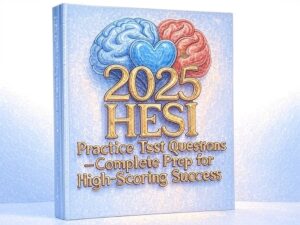
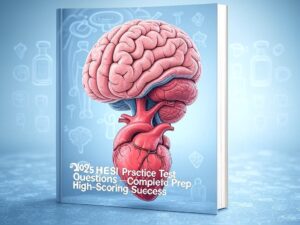


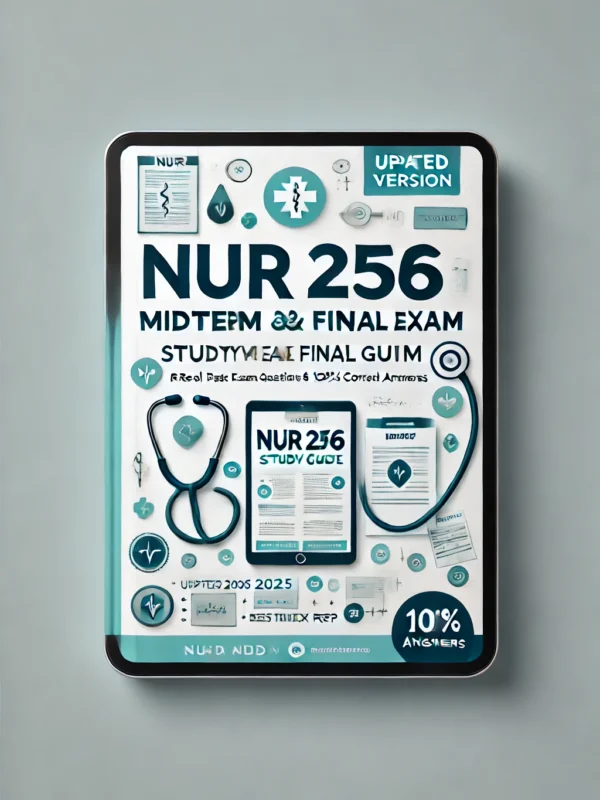
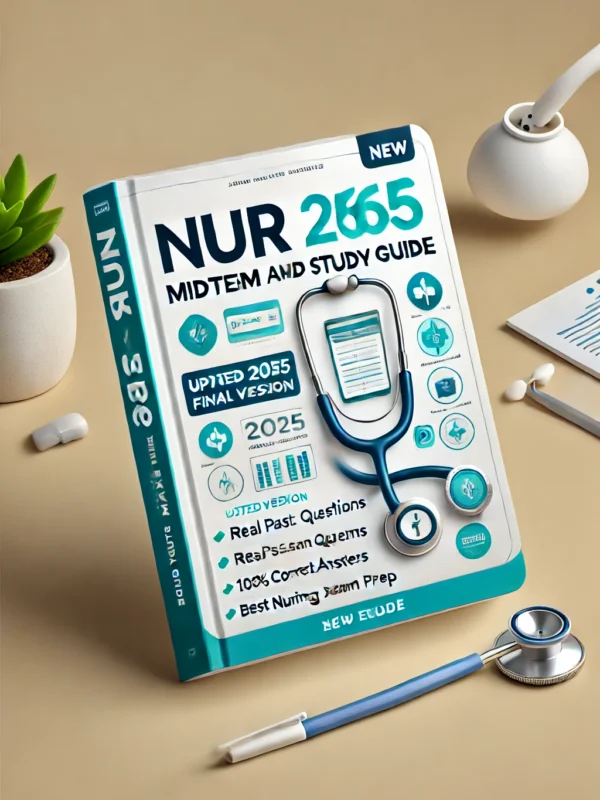
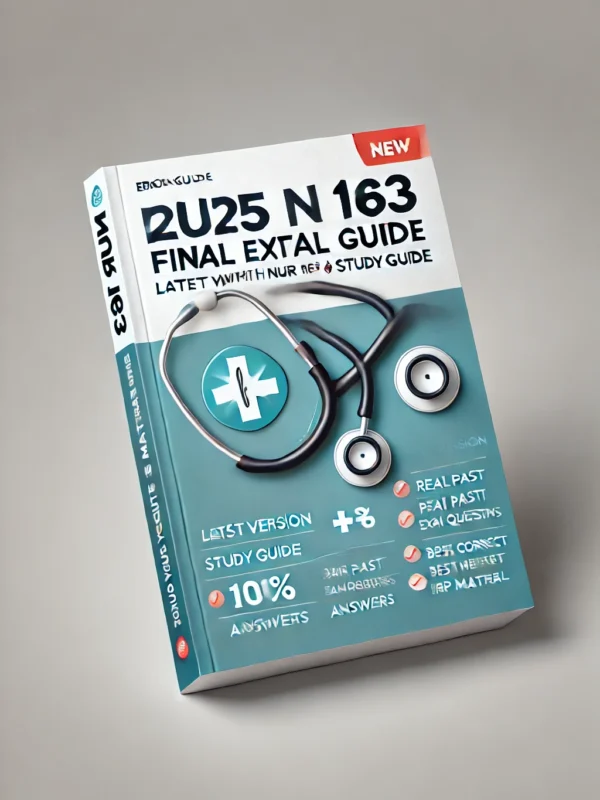
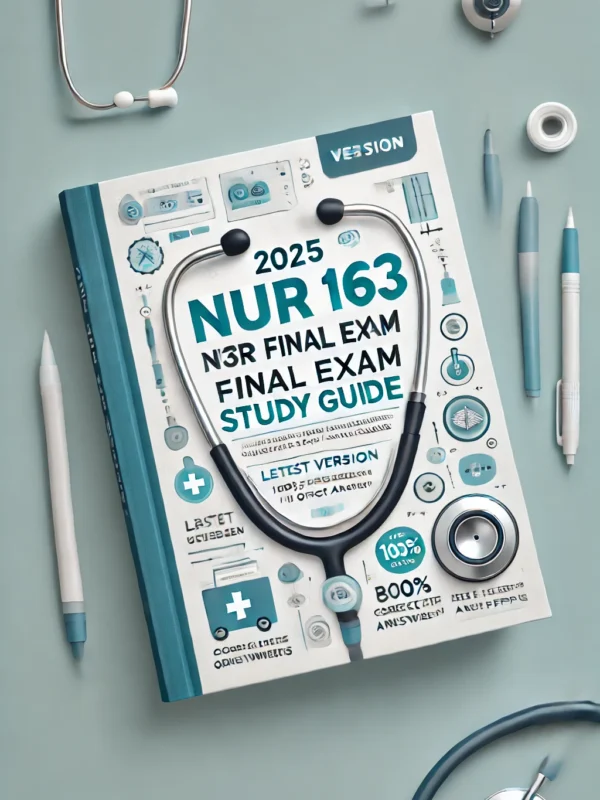


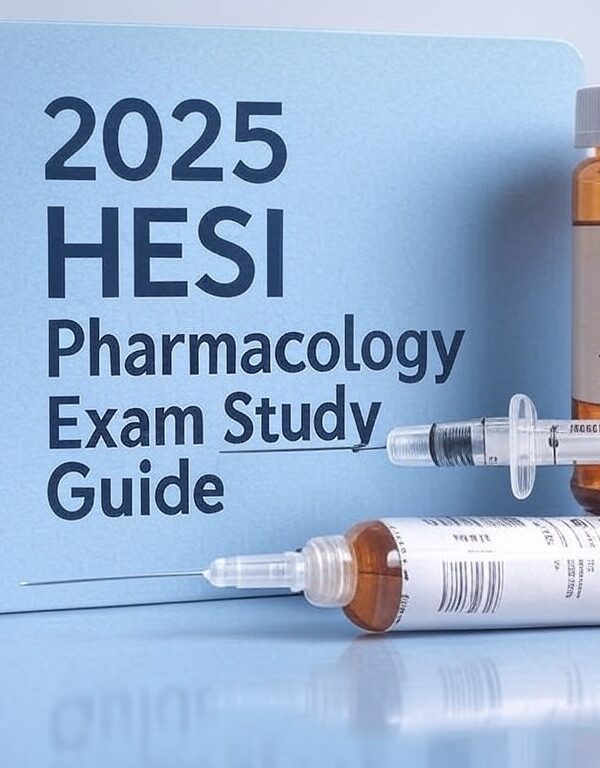
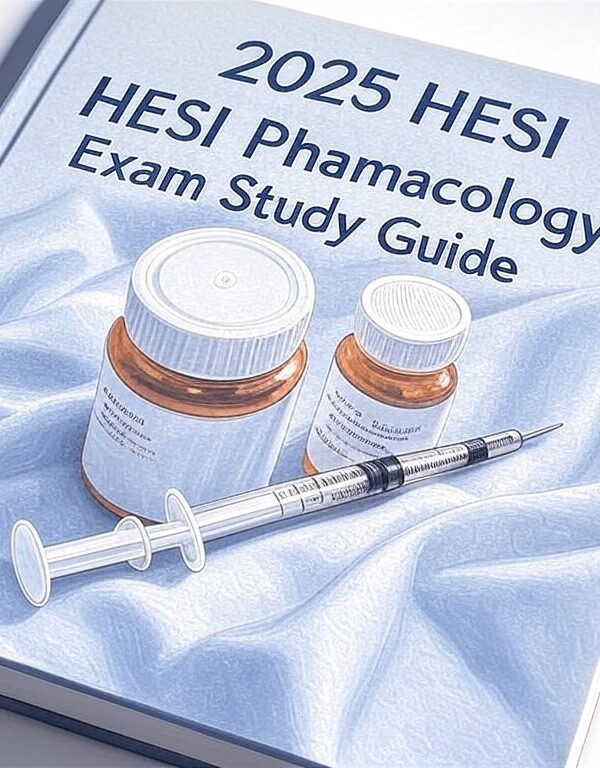
Reviews
There are no reviews yet.